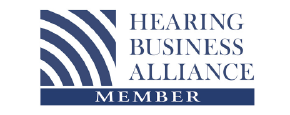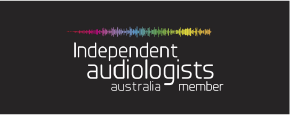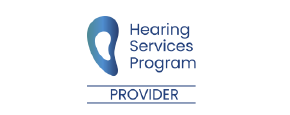Are you looking for a hearing test in Mango Hill?
Are you having difficulty communicating? Our expert audiologists at Hearing Help can help improve your hearing clarity. Book your consultation today and reconnect with the sounds and people you love!
Hearing Test in Mango Hill Brisbane
Are you looking for Hearing Test in Mango Hill Brisbane? We are conveniently located within the Newport Physio and Health clinic at Newport Marketplace. Our experienced audiologists provide comprehensive hearing tests to assess and address hearing loss. Utilising state-of-the-art facilities and the latest technology, we deliver personalised care and support to ensure accurate results. Our team focuses on patient-centered care, fostering a welcoming environment for individuals of all ages. With a strong community reputation and accreditation under the Hearing Services Program, we are dedicated to helping you achieve better hearing health. By understanding the importance of hearing tests and the process involved, you can take the first step towards improving your overall quality of life.
About Hearing Help
At the forefront of audiological care, Hearing Help has established itself as a trusted and reputable provider of comprehensive hearing services in Mango Hill, Brisbane, and beyond. With a team of experienced audiologists and hearing specialists, the company is dedicated to delivering personalised care and support to individuals with hearing loss. Hearing Help’s commitment to excellence is evident in its state-of-the-art facilities, equipped with the latest technology to diagnose and treat a range of hearing conditions.
The company’s services encompass a wide range of hearing evaluations, including comprehensive hearing assessments, tympanometry, and acoustic reflex testing. Additionally, Hearing Help offers hearing aid fittings, repairs, and maintenance, as well as tinnitus management and earwax removal. By prioritising patient-centered care, Hearing Help has built a strong reputation in the community, with patients appreciating the warm and welcoming approach of its staff. By staying up-to-date with the latest advancements in audiological care, Hearing Help ensures its patients receive the best possible outcomes for their hearing health.
Why Choose Hearing Help?
Hearing Help provides comprehensive audiology services specifically tailored to the needs of the Mango Hill community. As an accredited service under the Hearing Services Program (HSP), they offer fully subsidised hearing assessments and hearing aids to eligible pensioners and veterans. Additionally, they are accredited under the Department of Veterans Affairs (DVA) for hearing assessments and assistive devices, and can process Medicare claims for subsidised hearing assessments with a valid doctor’s referral.
Importance of hearing health and regular hearing tests
Maintaining good hearing health is crucial for overall well-being, as it plays a significant role in communication, social interaction, and cognitive function. Regular hearing tests are essential to identify any hearing problems early on, allowing for prompt treatment and prevention of further damage. Untreated hearing loss can lead to feelings of isolation, depression, and anxiety, as well as decreased job performance and strained relationships. By scheduling regular hearing tests, individuals can take proactive steps to protect their hearing and address any issues before they become more severe, ensuring a better quality of life and improved overall health.

What is a Hearing Test?
A comprehensive hearing test, often referred to as a hearing assessment or audiogram, is a series of evaluative procedures designed to quantify an individual’s range of hearing and identify potential areas of hearing loss. Conducted by an audiologist or hearing specialist, the test aims to assess the sensitivity, acuity, and integrity of an individual’s auditory system. It provides a detailed analysis of how well an individual can detect and process different frequencies and sounds, from soft whispers to loud noises.
Through a hearing test, healthcare professionals can determine whether an individual is experiencing hearing difficulties, and if so, the extent and nature of the issue. The test results are presented in an audiogram, a visual representation of an individual’s hearing threshold levels. This information is vital in identifying potential hearing problems, determining the need for further evaluation or treatment, and developing strategies to prevent further hearing deterioration.
Types of Hearing Tests
To accurately diagnose and address hearing difficulties, various types of assessments are employed by audiologists and hearing specialists, each designed to evaluate distinct aspects of auditory function. The Pure Tone Audiometry test is a fundamental assessment that measures an individual’s ability to detect sounds of varying frequencies and intensities. This test is typically conducted in a soundproof room and provides a comprehensive understanding of a person’s hearing threshold.
Speech Audiometry is another essential evaluation, which assesses an individual’s ability to comprehend speech in different environments. This test helps determine how well a person can understand conversations in quiet and noisy settings. Middle Ear Function tests, such as Tympanometry and Acoustic Reflex testing, examine the middle ear’s mechanical functioning and its response to sound. Auditory Brainstem Response (ABR) testing is used to evaluate the integrity of the auditory nerve and brainstem. Each of these assessments plays a crucial role in diagnosing and managing hearing difficulties. By utilising a combination of these tests, audiologists can develop a detailed understanding of an individual’s hearing abilities and provide personalised recommendations for treatment.
Preparing for Your Hearing Test
To ensure a smooth and effective hearing test experience, it is essential to be well-prepared. In this section, we will outline what to expect from the hearing test process, from the moment you arrive to the completion of the assessment, as well as provide guidance on how to prepare. By understanding the process and duration of a typical hearing test, you can feel more comfortable and confident, allowing for accurate and reliable results.
What to Expect
When you arrive at our hearing clinic for your hearing test, our experienced audiologists will guide you through a comprehensive assessment to evaluate your hearing health. To ensure accurate results, we kindly request that you refrain from exposure to loud noises for at least 12 hours prior to the test. This allows us to obtain a baseline reading of your current hearing levels.
During the assessment, we will ask you a series of questions about your medical history, including any previous ear problems, hearing difficulties, or exposure to loud noises. This information helps our audiologists understand potential causes of hearing loss and tailor the assessment to your specific needs.
We strive to provide a comfortable and relaxed environment, ensuring you feel at ease throughout the assessment. If you have any concerns or questions, please don’t hesitate to ask. Our goal is to empower you with knowledge about your hearing health, enabling you to make informed decisions about your treatment options. By understanding what to expect, you’ll feel more prepared and confident during your hearing test.
Description of the process from arrival to completion
Upon arrival at our Mango Hill clinic, the hearing test process begins with a warm welcome from our reception staff, who will ensure all necessary paperwork is complete and guide you through to the testing area. Our experienced audiologists will then introduce themselves, explain the test procedures, and answer any questions you may have.
The hearing test itself will commence with a thorough examination of your ear canal and eardrum, using an otoscope to check for any blockages or anomalies. Next, you will be seated in a soundproof room and fitted with headphones, through which a series of sounds will be transmitted to assess your hearing thresholds. Our state-of-the-art testing equipment ensures accurate and reliable results.
Throughout the process, our audiologists will provide clear instructions and ensure your comfort and understanding. We value the importance of this assessment and strive to make the experience as seamless and stress-free as possible. Our goal is to provide you with an accurate diagnosis and subsequent treatment options tailored to address any hearing concerns you may have.
Duration of a typical hearing test
Our comprehensive hearing tests are designed to be efficient and typically last around 30-60 minutes, allowing our audiologists to thoroughly assess your hearing and address any concerns you may have. The duration of the test may vary depending on the complexity of the assessment and the individual’s specific needs. During this time, our experienced audiologists will conduct a series of tests to evaluate your hearing thresholds, speech understanding, and middle ear function.
The tests are conducted in a soundproof room to minimise external noise and ensure accurate results. Our audiologists will also take the time to discuss your medical history, lifestyle, and any hearing-related concerns you may have. This comprehensive approach enables us to gain a thorough understanding of your hearing health and provide personalised recommendations for treatment or management. By allocating 30-60 minutes for the hearing test, we can ensure that you receive the attention and care you need to address any hearing-related issues.
Tips for preparing for a hearing test
To ensure accurate results and a productive session, it is essential to properly prepare for your hearing test by following a few simple steps. Before your appointment, make a list of your medical history, including any previous hearing problems, ear surgeries, or exposure to loud noises. Additionally, write down your symptoms, such as difficulty hearing high-pitched sounds or ringing in your ears. This information will help your audiologist understand your hearing concerns and tailor the test to your needs.
On the day of the test, avoid exposure to loud noises, which can temporarily affect your hearing. Also, make sure to remove any earwax or debris from your ear canals, as this can interfere with the test results. During the test, follow the audiologist’s instructions carefully, and ask questions if you are unsure about any part of the process. By being prepared and informed, you can ensure a smooth and effective hearing test that provides accurate results and helps you address any hearing concerns.
The Hearing Test Procedure
The hearing test procedure at our hearing clinic begins with an initial consultation, where you will have the opportunity to discuss your symptoms and concerns with one of our experienced audiologists. During this consultation, your audiologist will also ask about your medical history to gain a comprehensive understanding of your hearing health. Following this discussion, we will conduct a series of tests to assess your hearing and identify any potential issues.
Initial Consultation
During your initial consultation, a comprehensive hearing assessment will be conducted by a qualified audiologist to identify any potential hearing loss or abnormalities. This assessment may include several tests, such as otoscopy, tympanometry, and audiometry. Otoscopy involves a visual examination of your ear canal and eardrum using an otoscope, while tympanometry assesses the mobility and function of your eardrum and middle ear system.
Audiometry, on the other hand, is a crucial component of the hearing assessment. This test involves measuring your ability to detect and respond to sounds at varying frequencies and intensities. You will be seated in a soundproof room and instructed to respond to sounds presented through headphones. The results of these tests will provide valuable information about your hearing threshold, enabling the audiologist to determine the extent and nature of any hearing loss. This comprehensive assessment ensures that any potential issues are thoroughly investigated, allowing for accurate diagnosis and effective treatment planning. The results will also serve as a baseline for future reference, enabling the audiologist to monitor any changes in your hearing over time.
Discussion with an audiologist about symptoms and medical history
Following a comprehensive hearing assessment, a discussion with an audiologist about your symptoms and medical history is crucial in gathering relevant information that may impact the diagnosis and treatment of any hearing-related issues. This discussion provides an opportunity for you to share your personal experiences and observations about your hearing, including any difficulties you’re experiencing, such as trouble understanding speech in noisy environments or feeling as though your ears are plugged.
During this discussion, the audiologist will take a thorough medical history, including questions about any previous ear problems, surgeries, or head injuries that may be relevant to your current hearing situation. The audiologist will also inquire about any medications you’re taking, as certain medications can have ototoxic effects that may impact hearing. Additionally, they’ll ask about any exposure to loud noises, whether at work or during recreational activities, as this can contribute to hearing loss. By sharing this information, you can help the audiologist gain a more complete understanding of your hearing situation, allowing for more effective diagnosis and treatment.
Conducting the Tests
Conducting a comprehensive hearing test procedure involves a series of evaluations designed to assess various aspects of auditory function, including sound detection, speech recognition, and middle ear mobility. The process typically begins with a visual examination of the ear canal and eardrum using an otoscope to check for any blockages or abnormalities. Next, the audiologist will conduct a series of sound detection tests, such as pure-tone audiometry, to determine the patient’s ability to detect different frequencies and decibel levels.
Speech recognition tests, including speech audiometry, are also conducted to assess the patient’s ability to understand and repeat words and phrases in a variety of listening environments. Middle ear function is evaluated using tympanometry, which assesses the mobility of the eardrum and middle ear bones. The results of these tests are then used to create a comprehensive picture of the patient’s auditory function, identifying any potential hearing issues and informing the development of a personalised treatment plan. By combining the results of these tests, the audiologist can accurately diagnose and manage hearing loss, ensuring the best possible outcomes for the patient. A thorough hearing test procedure is essential for effective hearing loss management.
Post-Test Consultation
Following the completion of a hearing test, a comprehensive post-test consultation is conducted to discuss the test results and explore suitable treatment options. During this consultation, our expert audiologists provide personalised recommendations to address any identified hearing concerns, ensuring that the individual’s specific needs are met. The consultation also provides an opportunity to schedule any necessary follow-up appointments, guaranteeing that the individual receives ongoing support and care.
Treatment Options and Recommendations
Based on the results of the hearing test, a comprehensive treatment plan is developed and presented during the post-test consultation to address the specific hearing needs and concerns of each individual. The audiologist or hearing specialist will discuss the most suitable treatment options, which may include hearing aids, cochlear implants, assistive listening devices, or auditory rehabilitation. The goal is to improve communication, address hearing loss, and enhance overall quality of life.
The treatment plan takes into account the individual’s lifestyle, preferences, and budget. The specialist will also consider any medical conditions, such as earwax buildup or middle ear problems, that may be contributing to the hearing loss. Recommendations may include further testing, such as speech audiometry or tympanometry, to gather more information. The specialist will also provide guidance on how to use and care for any recommended devices, as well as offer support and counseling to help the individual adjust to their new treatment plan.
Scheduling Follow-Up Appointments
To ensure the effectiveness of the treatment plan and address any ongoing concerns, scheduling follow-up appointments is a crucial step in the post-test consultation process. This allows our audiologists to monitor progress, make any necessary adjustments to the treatment plan, and address any questions or concerns that may have arisen since the initial consultation. Regular follow-up appointments also enable us to assess the fit and function of any hearing devices, making sure they are providing optimal benefit and comfort.
During these appointments, our audiologists will typically review the treatment plan, assess hearing aid performance, and make any necessary adjustments. We will also address any ongoing concerns or issues, and provide additional counseling and support as needed. By scheduling regular follow-up appointments, we can work together to ensure the best possible outcomes and improve overall hearing health. Our goal is to provide ongoing support and care to help our patients achieve their hearing goals and improve their overall quality of life.
Book an appointment
Ready to hear the world more clearly? Contact Hearing Help today to schedule your personalised hearing consultation. Call us or visit our website to find your path to better hearing. We’re here to help you connect with every sound life has to offer.
Address: Newport Marketplace Shopping Centre
Tenancy M01, 10 Lakeview Promenade, Newport QLD 4020
(located inside Newport Physio rooms)
Phone: 07 3214 3641
Email: hello@hearinghelpredcliffe.com.au










